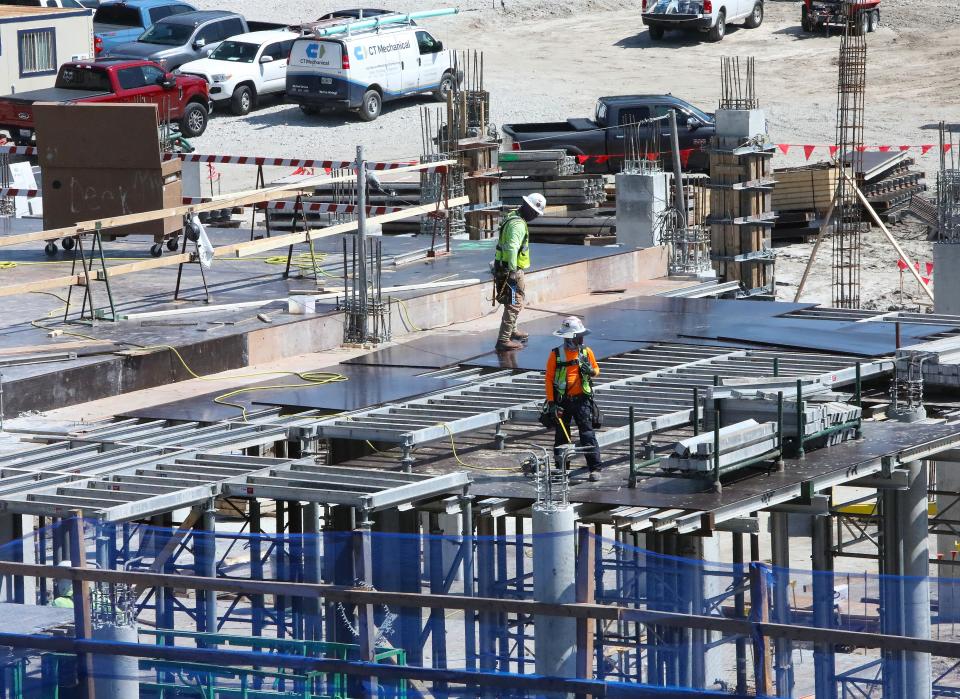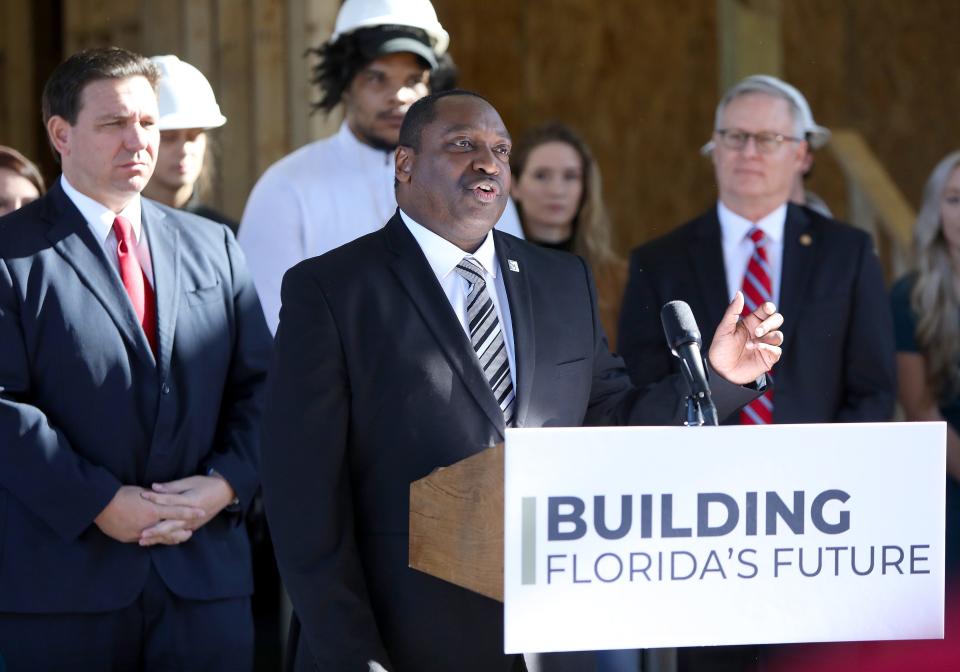If students can’t read, it’s foolhardy to think they will be able to compete for jobs
Take a drive around Gainesville and you’re likely to see lots of building construction, especially on and near the University of Florida campus. Out of necessity, today’s construction industry — both locally and nationally — has quietly begun relying on technological advances such as robotics, automation, sensors and smart phones to get the job done.
The shift to more technology-assisted construction is yet another reason why Gainesville For All’s family learning center is urgently needed. If there isn’t a drastic change in how young people are educated, even more of them will be left behind unqualified to perform in the workplace.

The situation is already dire, with no end in sight to the widening academic achievement gap between Black and white students in Alachua County. The latest statewide standardized test results show just 31% of Black students in the county passed the third grade reading test.
Reading is essential to learning. If students can’t read, it’s foolhardy to think they will be able to compete for jobs in industries like construction, which is turning to technology due to widespread labor shortages, inefficient productivity and jobsite safety.
Having grown up around concrete construction during an era in which an unskilled worker could walk on a job, grab a shovel and earn a decent living, it’s clear that those days are gone. And they are not coming back.
Fortunately, there are indicators that leaders in this community such as Paul Broadie, president of Santa Fe College, and Eric Godet, president of the Gainesville Chamber of Commerce, get it. They are among those who have been actively advancing the merit of workforce development through vocational or career training and retraining for such jobs as electricians, plumbers, welders and heating and air conditioning specialists.

Aaron Costin, assistant professor at UF School of Construction Management, has written extensively on the problems facing the construction industry. He believes the prevalent “go to college’’ mindset must change.
“Book smart is great,” he said. “But someone could learn as much in the first two years on a construction job as a college grad in four years of study. Plus, there is good pay and no college loan debt.”
Because too few workers are choosing the vocational career path, to remain viable the housing industry, for example, is utilizing assembly lines, prefabrication and modular construction. If this keeps up, jobs both skilled and unskilled will be lost.
With job losses comes the added threat of a widening economic inequality gap driven by demand for skilled labor in an increasingly knowledge-based economy.
More from James F. Lawrence:
Efforts to improve public education haven’t achieved desired result
Even after Uvalde, little reason to be optimistic about gun control legislation
Support helps fathers take more active role in their children's lives
European countries such as Norway, Finland and Germany came up with a solution decades ago. They offer government and private sector sponsored vocational programs considered among the best in the world. In Germany, for instance, 51% of its skilled workers are trained under a dual system of vocational education.
Now let’s circle back to the Gainesville Empowerment Zone Family Learning Center. The facility, which GNV4ALL hopes to open in the fall, will serve low-income families whose children are the poorest performers in county classrooms. We believe that placing these children on track for a lifetime of learning as early as 6 weeks old and connecting their families to vital community services can start to ensure that there will be a well-trained workforce.

Workplace benefits may not be seen for more than a decade, but we’ll be able to show a significant improvement in kindergarten readiness in just a few short years.
I’ll say it again: We’re the change you’ve been waiting for.
James F. Lawrence is executive director of GNV4ALL. Send inquiries to gnv4all@gmail.com.
Join the conversation
Share your opinions by sending a letter to the editor (up to 200 words) to letters@gainesville.com. Letters must include the writer's full name and city of residence. Additional guidelines for submitting letters and longer guest columns can be found at bit.ly/sunopinionguidelines.
Journalism matters. Your support matters.
Get a digital subscription to the Gainesville Sun. Includes must-see content on Gainesville.com and Gatorsports.com, breaking news and updates on all your devices, and access to the eEdition. Visit www.gainesville.com/subscribenow to sign up.
This article originally appeared on The Gainesville Sun: James F. Lawrence: Vocational, early childhood education needed

